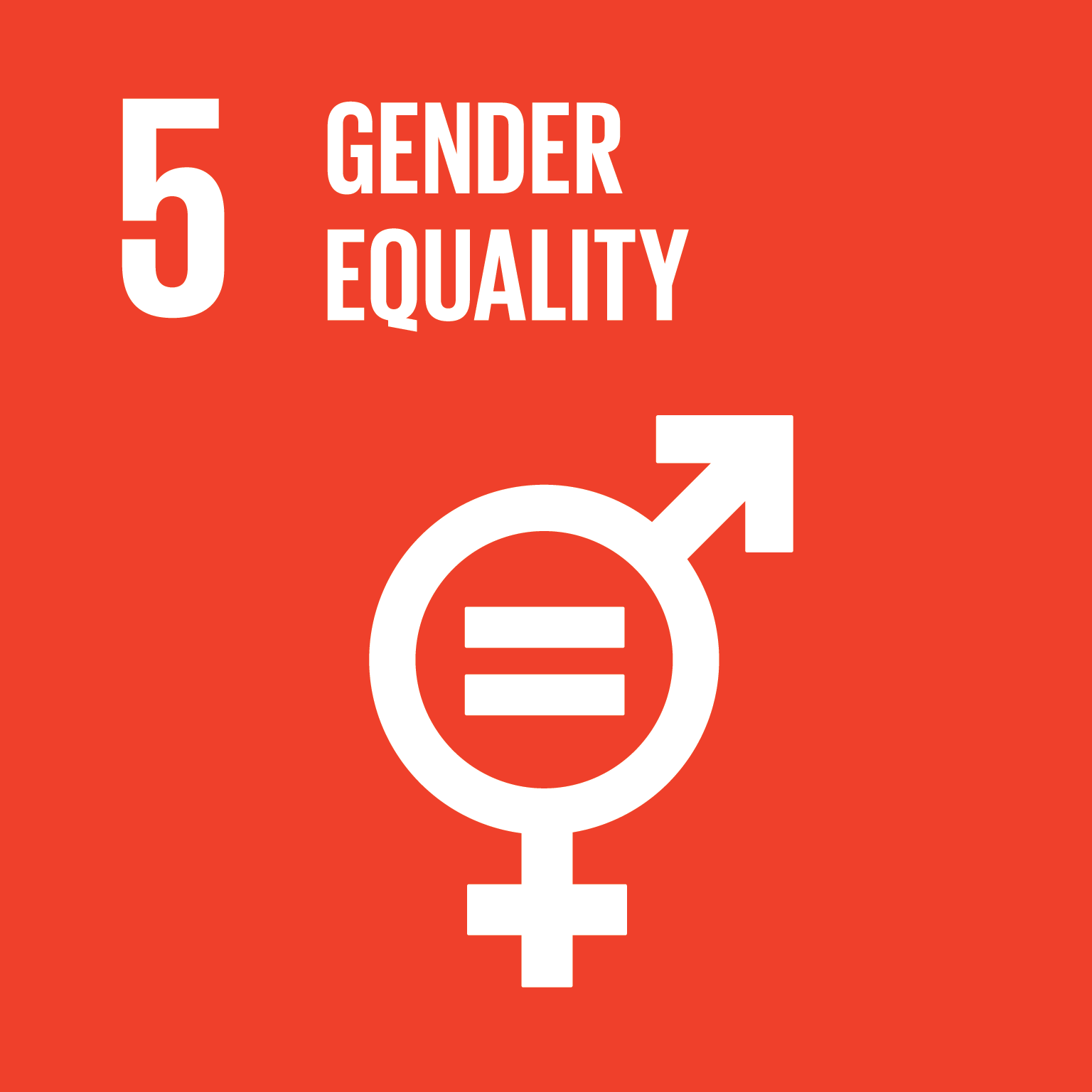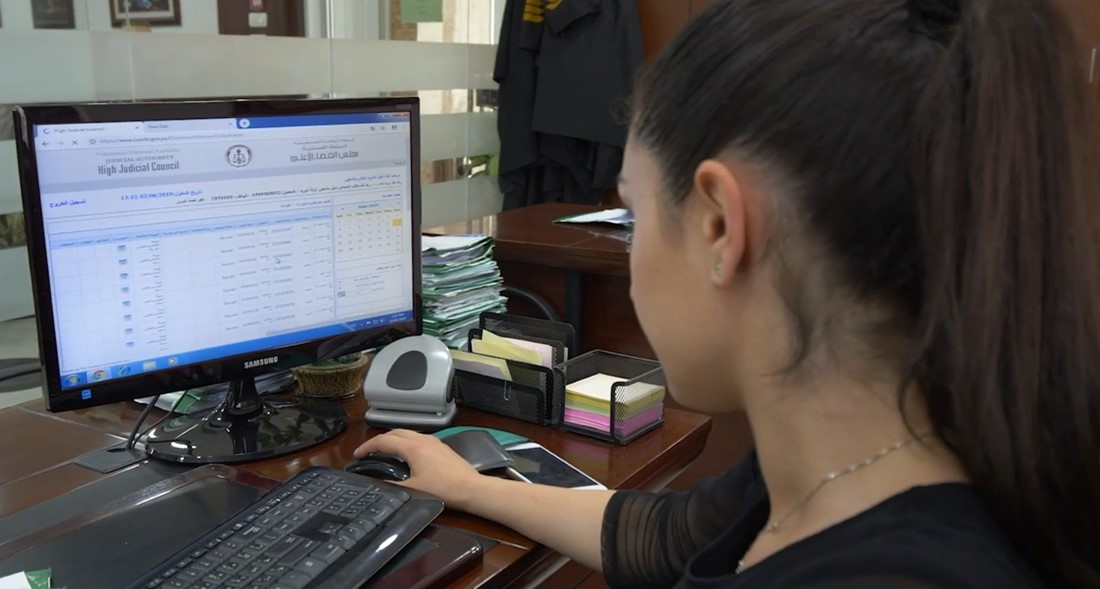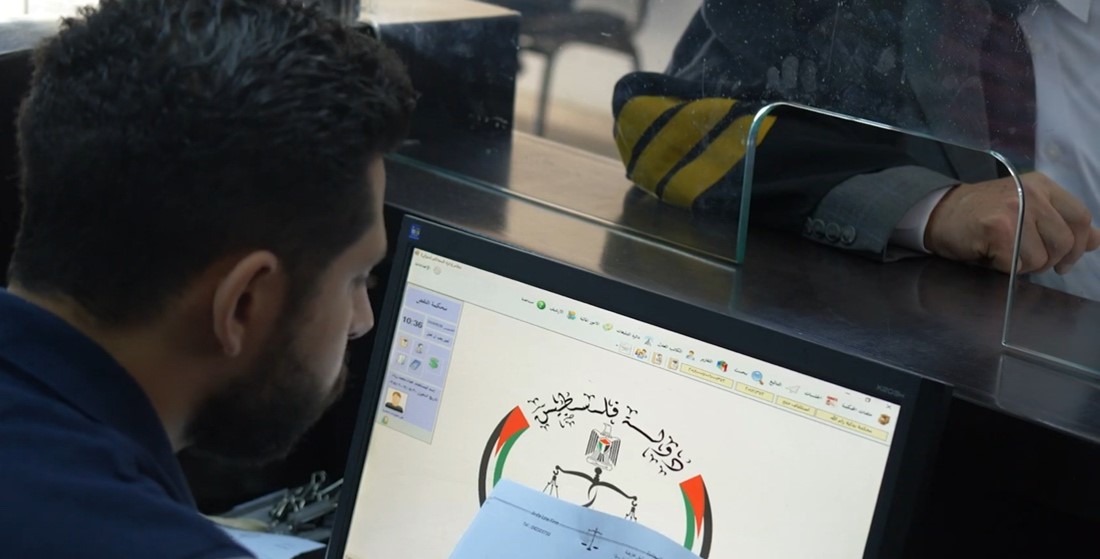Access to Justice through e-Services and Dematerialized Case Management
Scaling up connectivity and unlocking the digital potential of judicial institutions to enhance access to justice for all
Challenges
While the legal fragmentation of the occupied Palestinian territory has severely constrained the potential of rule of law institutions to deliver services to citizens, it has also incentivized nascent justice institutions to proactively seek digital solutions to divert Palestinian citizens away from well-established informal justice networks that often fail to offer even basic justice guarantees, particularly for women and children. This is a challenge that is not unique to Palestine: estimates show that in fragile contexts 90 percent of disputes are resolved outside formal justice mechanisms. However, the Palestinian digitalization experience offers a solid alternative through ground-breaking solutions that can sustainably address obstacles in accessing justice and have a high potential for replication across the Middle East and North Africa (MENA) region.
Towards a Solution
Digitalization has underpinned the development of justice institutions from the onset of the creation of the Palestinian Authority with the specific goal of providing Palestinian citizens with efficient, accessible and interconnected services. To deliver on this front, the High Judicial Council, from the time of its establishment in the early 2000s, partnered with the United States Agency for International Development to mainstream digital tools in judicial work. After the completion of the prototyping phase in 2006, the High Judicial Council joined forces with UNDP to further develop a comprehensive court management system and enhance Mizan-based connectivity among the various justice institutions and beyond.
To do so, UNDP developed a successful methodology that rests on four elements: national ownership, progressive implementation, wide stakeholder participation and complementarity of action. In this case, national ownership was secured through focusing the support provided by UNDP on local software development. While this tends to increase initial costs, it ensures sustainability in the long run as it eliminates ever rising and unpredictable licensing expenditures.
The gradual investments made by UNDP to equalize the capacity of various justice institutions also helped to develop an institutional culture that systematically factors in IT needs in budgetary exercises. The strategic digitalization of justice processes also fostered a progressive implementation approach underpinned by wide stakeholder participation that culminated in the establishment of the e-Justice committee.[1] This allowed for the introduction of incremental policy changes and helped increase reliance on Mizan applications, thereby stimulating sector-driven demand.
This methodology was key to expanding the Mizan model beyond Palestinian courts and helped to position the country as a leader and provider of knowledge on the case/court management front, hence also demonstrating the high potential and demand for South-South and Triangular Cooperation. In view of this, the High Judicial Council organized a regional conference with 16 MENA countries in 2019 that kickstarted cooperation in an area where technology transfer is crucial to fast-track the development of context-sensitive e-Justice platforms.
Building on renewed impetus for digitalization during the COVID-19 crisis, Djibouti and the State of Palestine are concluding a memorandum of understanding (MoU) to transfer the Mizan technology. Similarly, an MoU between the Kingdom of Morocco and the State of Palestine is tabled for signature and envisages the formation of a joint committee in the field of e-Justice.
On this front, the Mizan system has proved a critical vehicle, particularly as it promotes more equal access to justice (SDG 16.3). Applications – such as the filing of enforcement motions online – are critical in reducing transactional costs, including when Palestinians continue to face considerable movement restrictions. Another example includes Mizan’s unified warrant system that helps deliver warrants to citizens during routine traffic stops. Mizan also substantially reduced corruption and bribery (SDG 16.5) as files are completely digitized, and the system schedules hearings and assigns judges based on predetermined criteria.
Moreover, justice institutions can now automatically produce reports against policy targets, thereby fostering access to public information (SDG 16.A) and a strategic use of accountability frameworks for more effective, accountable and transparent institutions (SDG 16.6). Mizan’s connectivity with the Al-Muqtafi database is also contributing to enhancing equal access to legal information (SDG 16.A) with justice decisions being directly linked with over 50,000 pieces of legislation, jurisprudence and legal doctrine. Access to justice for women (SDG 16.3) also improved, including through technology-based legal empowerment (SDG 5.8).
A related achievement is that thousands of women no longer need to ensure liaison with banking institutions to receive alimony as Mizan digitally transfers orders to the relevant parties. Mizan also deals with social inquiry reports filed by Child Protection Counsellors appearing in juvenile case files, thereby allowing for the adoption of more measures that are protective of children (SDG 16.2). This builds on expertise aggregated over time under the Joint UNDP, UN Women and UNICEF Sawasya Programme.
Such results are key to sustaining joint and complementary support between technical and development partners and underpin the work of the Sawasya Programme and UNDP’s Chief Digital Office to convert Mizan into a digital public good that will be adaptable to and sustainable for other contexts.
Contact Information
Dr. Christopher Decker, Joint Programme Manager, Joint UNDP-UN Women-UNICEF Sawasya Programme, UNDP
Countries involved
Djibouti, Morocco, State of Palestine
Nominated By
United Nations Development Programme (UNDP)
Supported By
Government of the Netherlands, Sweden – Swedish International Development Cooperation Agency (SIDA), Spain – Spanish Agency for International Development Cooperation (AECID) and the European Union (EU).
Implementing Entities
High Judicial Council, Attorney General’s Office, Supreme Judge Department, Ministry of Justice, Ministry of Social Development, civil society organizations.
Project Status
Completed
Project Period
2018 - 2023
Sectors
Law, Digital Transformation
URL of the practice
https://www.youtube.com/watch?v=w6OtXa4a4XgPrimary SDG
16 - Peace and Justice Strong Institutions
Secondary SDGs
05 - Gender Equality
Primary SDG Targets
16.2 16.3 16.5 16.6Similar Solutions








